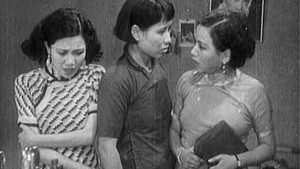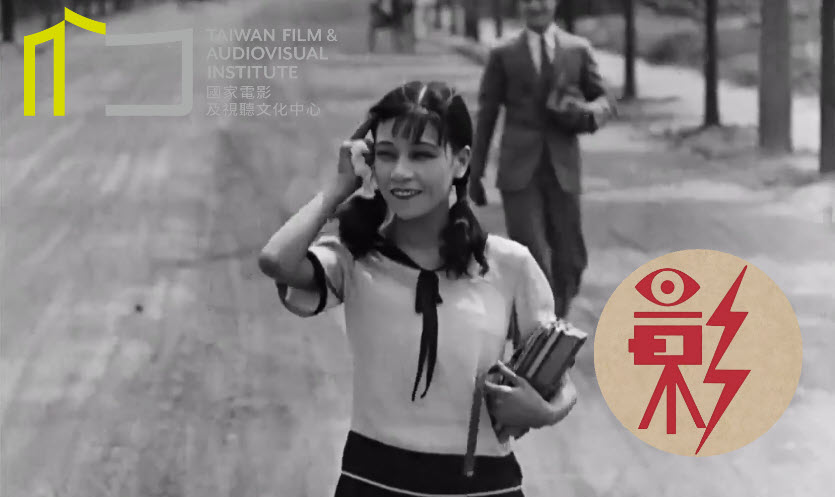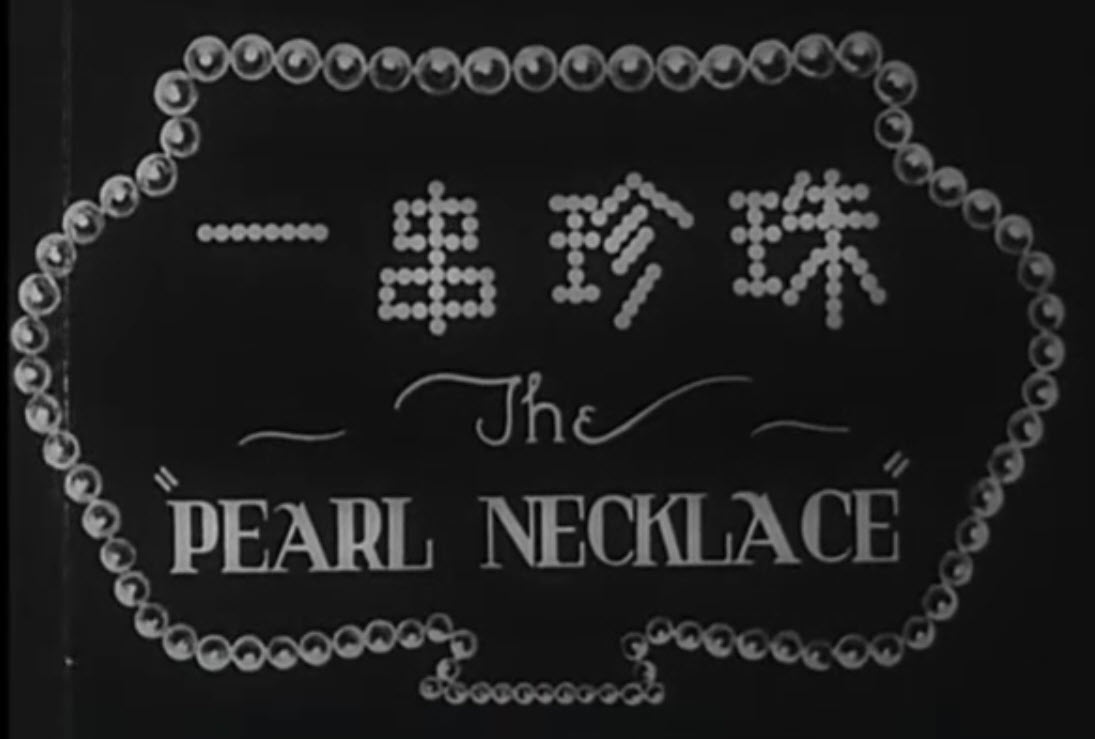The film:
Qinghai chongwen 情海重吻
Alternative English title: Kissed Again in a Sea of Love
Directed by Y.C. Zai (Xie Yunqing 謝雲卿)
Cinematography: S.M. Chow (Zhou Shimu 周詩穆) and P.H. Yuen (Yan Bingheng 嚴秉衡)
Set design: S.K. Fu (Hu Xuguang 胡旭光)
Starring: Lyton Wang (Wang Naidong 王乃東), T.S. Tong (Tang Tianxiu 湯天繡)
Studio: Great China Lilium (Da Zhonghua baihe yingpian gongsi 大中華百合影片公司)
Date of release: January 20, 1929
Running time: 61 minutes
Silent, with bilingual Chinese-English title cards
English subtitles translated by Lorraine Shen
Subtitles created by Liu Yuqing
ABOUT THE FILM
This conservative tale, in which a patriarch and his son-in-law forgive errant and meddling women, wins the Oscar for most male onscreen weeping. Female infidelity, male suffering, and marital reconciliation are dominant themes (with a little light farce thrown in), as in other moral dramas such as Love and Duty 戀愛與義務 (1931) and A Dream in Pink 粉紅色的夢 (1932). Lyton Wang 王乃東, who plays the victimized husband, went on to fame as the rake “Dr. Wang,” the nemesis of Ruan Lingyu’s character in New Women 新女性 (1935). Kissed Again in a Sea of Love, as its Chinese title might be translated, borrows its English title from Cecil B. De Mille’s Don’t Change Your Husband (1919), starring Gloria Swanson. Like many Chinese silent films, it features bilingual Chinese-English title cards.
SYNOPSIS:
It’s the summer of 1928, and Wang Qiping (Huang Chi Pin) is in trouble. Having just been fired from his white-collar job in Shanghai, he discovers that his wife Xie Lijun has been running around with a rich playboy, the dissipated college student Chen Mengtian (Chen Mong Tien). Wang’s mother is furious about her daughter-in-law’s behavior and goes to the Xie mansion to demand that they return the betrothal gifts. Mrs. Xie, knowing that her daughter is in the wrong, sends her servants to find her daughter and do damage control. She then accedes to Chen’s plan to pressure the couple to file for divorce with Chen’s pal, Attorney Cui (Tsai/Chay).
Xie, believing herself and Chen to be truly in love, lets Chen persuade her to divorce go to the lawyer’s office, despite some nagging misgivings. Wang sheds copious tears over their estrangement but shows up when he receives a letter from Attorney Cui. A farcical scene ensues at the lawyer’s office, in which both husband and wife have second thoughts, and proxies end up taking charge – Mrs. Wang signing for her son, and Chen guiding Xie’s hand. Wang is inconsolable, while Xie wonders whether she has done the right thing, despite Chen’s assurances that they are now in “seventh heaven.”
A reckoning ensues when Xie Lijun’s father, Mr. Xie, returns to Shanghai for his fiftieth birthday celebration. Wang Qiping shocks Mr. Xie by revealing that they are no longer kin; Chen Mengtian receives a telegram from his father upbraiding him for his debauchery and follows his command to return home for an arranged marriage; and the abandoned Xie Lijun collapses at Chen’s place. Mr. Xie asks Qiping to forgive Lijun and take her back, and the estranged couple is reconciled when Qiping saves a remorseful Lijun from throwing herself into the sea.
Learn more:
Watch this long take featuring actor Wang Naidong:
Compare Wang Naidong’s performance in Don’t Change Your Husband with his more famous role opposite Ruan Lingyu in New Women (1935).
Related Posts
New Women 新女性 (1935)
A contemporary social drama about “the woman question.” What are women’s lives like in China today? And what should they be?

A Dream in Pink 粉紅色的夢 (1932)
A young couple in Shanghai divorce, to be reunited by the abandoned wife's devotion and literary talent.

Love and Duty 戀愛與義務 (1931)
A romantic melodrama with paternalistic overtones, Love and Duty was the first Lianhua film to showcase the chemistry between Ruan Lingyu and Jin Yan.

The Pearl Necklace 一串珍珠 (1926)
What's truly precious? This silent film features a conservative morality tale about women's vanity, with two outstanding scenes of animation.


